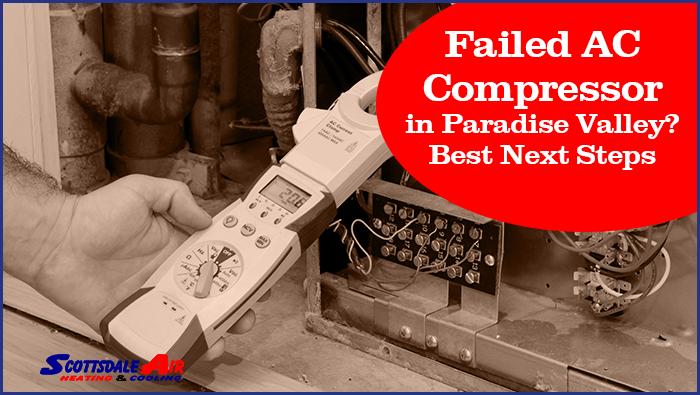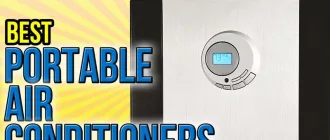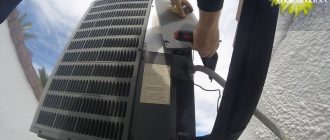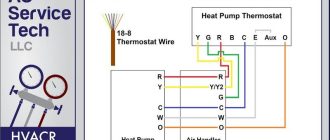
How do I know if my AC compressor has failed?
If your air conditioning (AC) system isn’t cooling your home like it used to, the culprit could be a failed AC compressor. The compressor is an essential component of the AC system that pressurizes and circulates the refrigerant, allowing it to absorb and release heat. When the compressor fails, it can cause your AC system to malfunction and leave you feeling hot and uncomfortable.
So, how do you know if your AC compressor has failed? There are several signs to watch out for. One sign is that your AC system is blowing warm air instead of cold air. This could indicate that the compressor isn’t pressurizing the refrigerant properly, preventing it from cooling the air. Another sign is unusual noises, such as banging or rattling sounds coming from the AC unit. These noises could be a result of a faulty compressor.
You may also notice leaks around your AC unit. If the compressor has failed, it could cause refrigerant to leak out, leaving puddles or stains near the unit. Additionally, a failed compressor may cause the AC system to cycle on and off frequently, as it struggles to maintain the desired temperature. Finally, if you notice a significant increase in your energy bills without any corresponding increase in usage, it could be a sign that your AC compressor has failed and is causing your system to work harder than it should.
If you suspect that your AC compressor has failed, it’s important to contact a professional HVAC technician to diagnose and repair the issue. Attempting to fix a failed compressor yourself can be dangerous and may cause further damage to your AC system. A skilled technician will be able to accurately diagnose the problem and recommend the best course of action to get your AC up and running again.
Unusual Noises: Banging, Clanking, or Rattling
One of the signs that your AC compressor has failed is the presence of unusual noises, such as banging, clanking, or rattling sounds. These noises are not normal and indicate that something is wrong with your AC system.
If you hear banging sounds coming from your AC unit, it could be a sign that the compressor has failed. The banging noise may be a result of a broken or loose component within the compressor, such as a piston or connecting rod. This can cause the compressor to malfunction, leading to a failed AC system.
Clanking noises are another indication that your AC compressor may have failed. These noises are often caused by loose or damaged parts within the compressor, such as a broken crankshaft or crankshaft bearing. When these parts are not functioning properly, they can create a clanking sound that is easily noticeable.
Rattling noises are also an indication of a failed AC compressor. This can occur when the compressor is not properly secured or when internal components, such as valves or pistons, are loose or broken. The rattling noise can be intermittent or continuous, depending on the severity of the issue.
If you notice any of these unusual noises coming from your AC unit, it is important to have it inspected by a professional. They will be able to diagnose the problem and determine if your AC compressor has failed. Remember, a failed AC compressor can lead to a complete system breakdown, so it is important to address the issue as soon as possible.
Weakened Airflow: Reduced Cooling Performance
If your AC compressor has failed, you may notice weakened airflow coming from your air conditioning vents. This reduced airflow can lead to a significant decrease in cooling performance, making it harder for your AC system to cool your space effectively.
When the compressor fails, it is unable to compress the refrigerant properly, resulting in a decrease in the overall cooling capacity of your AC unit. As a result, the air that is circulated through your system may not be as cool as it should be, leading to discomfort and inadequate cooling.
If you notice that the air coming from your vents is not as cold as it used to be, or if you find that your AC system is struggling to cool your space even when it is running at maximum capacity, it is likely that your AC compressor has failed. In this case, it is important to contact a professional HVAC technician to assess the situation and determine if a compressor replacement is necessary.
Remember, a failed AC compressor can have a significant impact on the cooling performance of your AC system. So, if you suspect that your compressor has failed, it is essential to address the issue promptly to avoid further damage to your AC unit and ensure optimal comfort in your space.
High Energy Bills: Inefficient Operation
If your AC compressor has failed, it can result in inefficient operation and high energy bills. When the compressor fails, it is unable to properly circulate refrigerant and maintain the desired temperature in your home or office. As a result, the AC system works harder than necessary to cool the space, leading to increased energy consumption.
There are several signs to look out for that indicate an inefficient operation of your AC system. Firstly, if your energy bills have been consistently higher than usual, it may be a sign that something is wrong with your compressor. Additionally, if you notice that your AC is running for longer periods of time or struggling to cool the space, this can also indicate an inefficient operation.
Another indication of an inefficient operation is if the air flowing from your vents is not as cold as it should be. This can be a sign that the compressor is not functioning properly and is not able to generate the necessary cooling power. If you notice any of these signs, it is important to have your AC system inspected by a professional as soon as possible.
It’s important to know if your AC compressor has failed, as continued operation can result in further damage to the system and potentially lead to higher repair costs. By being proactive and addressing any signs of compressor failure, you can ensure that your AC system operates efficiently and keeps your energy bills in check.
Lack of Cold Air: Warm or Hot Air Blowing
If my AC compressor has failed, how do I know? One sign is a lack of cold air, with warm or hot air blowing instead.
If you’ve turned on your air conditioning and are only getting warm or hot air, it could be a clear indication that your AC compressor has failed. The compressor, a key component of your air conditioning system, is responsible for compressing refrigerant and cooling the air before it is blown into your home or vehicle.
When the compressor fails, it can no longer carry out its function of compressing the refrigerant, causing the air blowing out of your AC system to remain warm or hot. This could affect your comfort, especially in hot weather.
Other possible causes for a lack of cold air could be a refrigerant leak or a faulty thermostat, but a failed compressor is a common issue when warm or hot air is blowing from your AC system.
If you suspect that your AC compressor has failed, it is recommended to contact a professional HVAC technician to diagnose and repair the issue. Attempting to fix it yourself could lead to further damage or injury.
By addressing the lack of cold air quickly, you can ensure that your AC system is working efficiently and providing the cool air you need to stay comfortable.
Leaking Refrigerant: Puddles or Stains
If your AC compressor has failed, one of the signs to look out for is leaking refrigerant. Refrigerant is a vital component that helps cool the air inside your home. When the compressor fails, it can cause leaks in the refrigerant system.
If you notice puddles or stains near your AC unit, it’s a strong indication that your compressor may have failed. Leaking refrigerant can create wet spots or even leave behind oily stains on the ground or around the unit.
So, how do you know if your AC compressor has failed? Keep an eye out for any of these signs:
- Lack of cool air: If your AC isn’t blowing cool air or if the airflow is weak, it could be a sign that the compressor has failed.
- Loud or strange noises: Unusual noises such as grinding, squealing, or hissing sounds coming from your AC unit can indicate a failed compressor.
- Tripped circuit breaker: If the circuit breaker for your AC keeps tripping, it could be due to a faulty compressor.
- Frequent on/off cycling: A failed compressor may cause your AC to turn on and off more frequently than usual.
- Increased energy bills: A failed compressor can lead to reduced cooling efficiency, resulting in higher energy consumption and increased utility bills.
If you suspect that your AC compressor has failed, it’s important to contact a professional HVAC technician to diagnose and fix the issue. They will have the expertise and tools needed to repair or replace the compressor, ensuring that your AC system works properly again.
Frozen Compressor: Ice Buildup on the Unit
If you notice ice buildup on your AC unit, it could be a sign that your compressor has failed. The compressor is responsible for circulating refrigerant through the system, allowing it to absorb heat from your indoor air. If the compressor fails, the refrigerant may not be able to circulate properly, causing ice to form on the unit.
If you see ice on your AC compressor, it’s important to address the issue as soon as possible. Continuing to run the AC with a failed compressor can cause further damage to the system and decrease its efficiency. It’s recommended to turn off the AC and call a professional HVAC technician to inspect and repair the compressor.
There are a few possible reasons why your compressor may have failed. It could be due to a lack of refrigerant, which can cause the compressor to overheat and fail. Another possible cause is a malfunctioning electrical component, such as a faulty capacitor or relay. Additionally, a clogged condensate drain or dirty air filters can restrict airflow, leading to ice buildup on the compressor.
If you’re unsure whether your compressor has failed, there are a few signs you can look out for. If you notice strange noises coming from your AC unit, such as grinding or buzzing sounds, it could indicate a problem with the compressor. Poor cooling performance or warm air coming from the vents can also be a sign of a failed compressor.
To prevent compressor failure and ice buildup, it’s important to properly maintain your AC system. This includes regularly changing air filters, cleaning the condensate drain, and scheduling annual maintenance with a professional HVAC technician. By taking these steps, you can help ensure that your AC compressor stays in good working condition, keeping you cool and comfortable during the hot summer months.
Burnt Smell: Electrical Issues
If my AC compressor has failed, one of the signs I may notice is a strong burnt smell coming from the AC unit. This burnt smell is often an indication of electrical issues within the compressor. When an AC compressor fails, it can cause the motor to overheat, leading to burnt wires or insulation.
If you notice a burnt smell coming from your AC when it is running, it is important to turn off the unit immediately and contact a professional HVAC technician. Continuing to use a failed AC compressor can result in further damage to the electrical system and potentially cause a fire hazard.
When contacting a professional to diagnose and repair a failed AC compressor, be sure to explain the presence of a burnt smell. This information can assist them in identifying the source of the electrical issue and determining the best course of action to resolve it.
In addition to the burnt smell, there may be other signs of a failed AC compressor, such as warm air blowing from the vents, strange noises, or excessive cycling of the AC unit. Understanding these signs and knowing how to identify them can help prevent further damage and ensure the efficient operation of your AC system.
In summary, if you notice a burnt smell coming from your AC unit, it is likely a sign of electrical issues related to a failed compressor. Take immediate action by turning off the unit and contacting a professional technician to diagnose and repair the problem.
Constant Cycling: Frequent On/Off Cycling
If your AC compressor is failing, one of the signs you may notice is constant cycling, or frequent on/off cycling. This means that the AC system turns on and off more frequently than usual.
If you notice that your AC unit is constantly cycling, it could be an indication that your compressor is not functioning properly. The compressor is responsible for pressurizing the refrigerant and circulating it through the system. If it is failing, it may not be able to maintain the necessary pressure, causing the system to constantly turn on and off in an attempt to reach the desired temperature.
So, how do you know if your AC compressor has failed? In addition to constant cycling, other signs may include reduced cooling performance, strange noises coming from the unit, and leaks around the compressor. If you notice any of these signs, it is important to have your AC system inspected by a professional technician.
What should you do if you suspect your AC compressor has failed? The best course of action is to contact a professional HVAC technician who can diagnose the issue and recommend the appropriate solution. They will be able to determine whether the compressor can be repaired or if it needs to be replaced.
In conclusion, constant cycling or frequent on/off cycling is one of the signs of a failed AC compressor. If you notice this symptom or any other signs of compressor failure, it is important to take action to prevent further damage to your AC system. Contact a professional technician to diagnose and resolve the issue.
Tripped Breaker: Overloading the Electrical System
If your AC compressor has failed, one sign to look out for is a tripped breaker, which indicates that the electrical system has been overloaded. When an AC compressor fails, it can draw too much power, causing the breaker to trip as a safety measure to prevent damage to the electrical system.
To know if your AC compressor has failed and caused a tripped breaker, you can follow these steps:
- Check your circuit breaker panel to see if any breakers have tripped. A tripped breaker will be in the “Off” position or somewhere in between “On” and “Off”.
- If you find a tripped breaker, identify which circuit it corresponds to. Usually, the breakers are labeled to indicate which part of the house or system they control.
- Reset the tripped breaker by flipping it fully to the “Off” position and then back to the “On” position. This will restore power to the circuit.
- Observe if the breaker trips again after a few minutes or seconds. If it does trip again, it is likely that your AC compressor has failed and is drawing too much power.
If you suspect that your AC compressor has failed and caused the tripped breaker, it is recommended to consult a professional HVAC technician to diagnose the issue and perform any necessary repairs or replacements. Attempting to fix the AC compressor on your own can be dangerous and may further damage the system.
Failed Fan Motor: No Air Movement
If your AC compressor has failed, one of the signs you may notice is a lack of air movement. When the fan motor fails, it can prevent the compressor from working properly. The fan motor is responsible for circulating air through the system, and without it, cool air cannot be properly dispersed.
There are a few ways to know if your fan motor has failed. First, you may notice that there is no air coming from the vents when your AC is on. This lack of airflow can indicate that the fan motor is not running. Additionally, you may hear a humming or buzzing noise coming from the unit, which can be a sign that the motor is trying to start but failing to do so.
If you suspect that your fan motor has failed, it is important to have a professional technician inspect and repair the unit. Attempting to fix the motor yourself can be dangerous and may further damage the compressor or other components of the AC system.
In conclusion, a failed fan motor can result in a lack of air movement in your AC system. If you notice that there is no air coming from the vents or hear unusual noises, it is important to have a professional inspect your unit to determine if the fan motor has failed and to provide the necessary repairs.
Blown Fuse: Electrical Failure
If your AC compressor has failed, it is important to determine the cause of the failure. One common electrical failure that can cause an AC compressor to fail is a blown fuse.
A blown fuse is a safety mechanism that protects the electrical system of your AC compressor. It is designed to prevent excessive current flow, which can cause damage to the compressor and other electrical components.
If the fuse in your AC compressor has blown, it is an indication that there is an issue with the electrical system. There are several possible reasons for a blown fuse, including:
- Faulty wiring: Wiring issues can cause a short circuit, leading to excessive current flow and a blown fuse.
- Defective components: Faulty components, such as the compressor motor or the fan motor, can cause a short circuit and blow the fuse.
- Overloading: If the AC compressor is operating at a higher load than it can handle, it can overload the system and blow the fuse.
If you suspect that a blown fuse is the cause of your AC compressor failure, you should not try to replace the fuse yourself unless you have experience working with electrical systems. It is best to call a professional technician who can properly diagnose and repair the issue.
Remember, a blown fuse is just one of the potential signs of a failed AC compressor. Other signs to look out for include strange noises, warm air coming from the vents, and decreased cooling performance. If you notice any of these signs, it is important to have your AC compressor inspected by a professional as soon as possible.
Strange Vibrations: Excessive Vibrations or Shaking
If your AC compressor has failed, you may notice strange vibrations coming from your air conditioning system. Excessive vibrations or shaking can be a telltale sign that something is wrong with the compressor.
When the compressor is working properly, it should operate smoothly and quietly. However, if it has failed or is on the verge of failure, it may start producing noticeable vibrations. These vibrations can be felt throughout your home or even heard as a loud buzzing or rattling noise.
Excessive vibrations or shaking can indicate a variety of issues with the compressor. It could be a result of worn-out or damaged components, such as the bearings or pistons. These components may become loose or misaligned, causing the compressor to vibrate and shake.
If you notice strange vibrations coming from your AC system, it’s important to have it inspected by a professional as soon as possible. A trained technician will be able to diagnose the problem and determine if your compressor has failed.
If your AC compressor has failed, you may also experience other signs, such as warm air coming from the vents, reduced airflow, or a complete lack of cooling. These symptoms, combined with the excessive vibrations, can confirm that your compressor is indeed failing.
So, how do I know if my AC compressor has failed? Excessive vibrations or shaking is one of the key signs to look out for. If you notice these symptoms along with other AC issues, it’s best to contact a professional for a thorough inspection and necessary repairs.
Delayed Start: Taking Longer to Activate
If your AC compressor is taking longer than usual to activate, it may be a sign that it has failed. Normally, when you turn on your AC, the compressor should start almost immediately. However, if there is a problem with the compressor, it may take longer for it to kick in.
There are a few reasons why this delayed start could occur. One possibility is that the compressor has become worn out or damaged over time. This can happen due to normal wear and tear or as a result of poor maintenance. Another possibility is that there is a problem with the electrical components that control the compressor, such as a faulty capacitor or relay.
If you notice that your AC compressor is taking longer to activate, it is important to address the issue as soon as possible. A failed compressor can lead to a complete breakdown of your AC system, leaving you without cool air during hot weather. To determine if your compressor has failed, you can check for other signs such as strange noises, leaks, or warm air coming from the vents.
If you suspect that your AC compressor has failed, it is best to contact a professional HVAC technician to assess the situation. They will be able to diagnose the problem and recommend the best course of action to get your AC system up and running again. In some cases, repairing the compressor may be possible, but in other cases, it may be more cost-effective to replace it.
In conclusion, if your AC compressor is taking longer to activate, it could be a sign that it has failed. To know for sure, check for other signs of a failed compressor and contact a professional for assistance. Don’t delay in addressing the issue to prevent further damage to your AC system.
Hot Compressor: Excessive Heat Output
One of the signs that your AC compressor has failed is excessive heat output. If you notice that your AC compressor is emitting a lot of heat, it could be a strong indication that something is wrong.
There are a few reasons why a failed AC compressor may produce excessive heat. One possibility is that the compressor motor is working too hard and becoming overheated. This can happen if the motor is damaged or if it’s trying to compensate for a malfunctioning component in the system.
Another potential cause of excessive heat output from a failed AC compressor is a refrigerant leak. When the refrigerant level is low, the compressor has to work harder to achieve the desired cooling effect. This increased workload can cause the compressor to generate more heat than usual.
If you notice that your AC compressor is hot to the touch or if you feel hot air coming out of your vents instead of cool air, it’s important to address the issue as soon as possible. Continuing to run your AC system with a failed compressor can lead to further damage and potentially costly repairs.
So, what should you do if your AC compressor has failed? The first step is to turn off your AC system to prevent further damage. Next, you should contact a professional HVAC technician to diagnose the issue and provide the necessary repairs or replacements.
Remember, a failed AC compressor can affect the overall performance and efficiency of your cooling system. By addressing the problem promptly, you can prevent further damage and ensure that your AC system continues to keep you cool and comfortable.
Short-Cycling: Rapidly Turning On and Off
One of the signs that your AC compressor has failed is short-cycling, which refers to the rapid and frequent turning on and off of your AC system. This can be caused by a variety of issues, including a malfunctioning compressor.
So, how do you know if your AC compressor has failed and is causing short-cycling? There are a few telltale signs to look out for:
| Frequent On and Off Cycles | If your AC system is turning on and off every few minutes, it is likely experiencing short-cycling. This can make it difficult for your home to reach and maintain a comfortable temperature. |
| Loud Noises | If you hear banging or clanging sounds coming from your AC unit when it turns on or off, it could be a sign of a failed compressor. These noises indicate that the compressor is struggling to start or is shutting down abruptly. |
| Increased Energy Bills | Short-cycling can lead to increased energy consumption and higher utility bills. When your AC system is constantly turning on and off, it uses more energy to start up each time, resulting in inefficiency and higher costs. |
| Inconsistent Cooling | If some rooms in your home feel overly cold while others remain warm, it could be a sign of short-cycling caused by a failed compressor. The uneven cooling can make your home uncomfortable and indicate that your AC system is not functioning properly. |
If you are experiencing any of these signs, it is important to have your AC system inspected by a professional HVAC technician. They can diagnose the issue and determine if your compressor has failed or if there is another underlying problem causing the short-cycling.
Remember, a failed AC compressor can lead to further damage to your AC system if not addressed promptly. So, if you suspect that your compressor has failed, don’t hesitate to schedule a service call to get it fixed.
Q&A:
What are some common signs that indicate a failed AC compressor?
Some common signs of a failed AC compressor include strange noises, hot air blowing from the vents, leaks, and reduced cooling performance.
Can a failed AC compressor be repaired, or does it need to be replaced?
In most cases, a failed AC compressor needs to be replaced rather than repaired. However, it is always best to consult with a professional HVAC technician to determine the best course of action.
How long does an AC compressor typically last before it fails?
The lifespan of an AC compressor can vary depending on factors such as usage, maintenance, and environmental conditions. On average, an AC compressor can last anywhere from 10 to 15 years.
What should I do if I suspect my AC compressor has failed?
If you suspect your AC compressor has failed, it is important to contact a licensed HVAC technician to diagnose the issue and recommend the necessary repairs or replacement. Continuing to run the AC system with a failed compressor can cause further damage and lead to more expensive repairs.
Are there any preventative measures I can take to avoid AC compressor failure?
Regular maintenance, such as cleaning or replacing air filters, checking refrigerant levels, and scheduling professional inspections, can help prevent AC compressor failure. Additionally, avoiding overworking the AC system by setting the thermostat to a reasonable temperature and not blocking airflow can also help prolong the life of the compressor.
What are the signs of a failed AC compressor?
Signs of a failed AC compressor include warm air coming from the vents, strange noises coming from the engine, leaking fluid, and the AC system not turning on at all.
How can I know if my AC compressor has failed?
You can know if your AC compressor has failed by checking for the signs mentioned above, such as warm air, strange noises, fluid leaks, and the system not turning on. Additionally, you can have a professional mechanic inspect and test the compressor for any issues.




